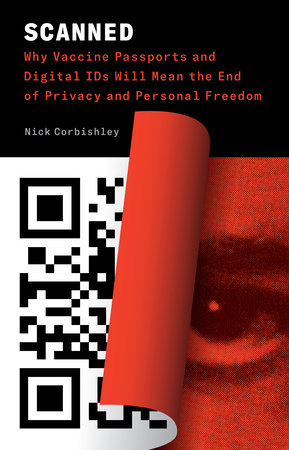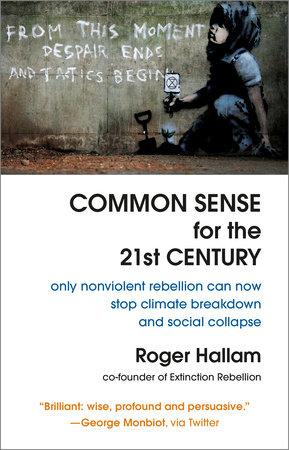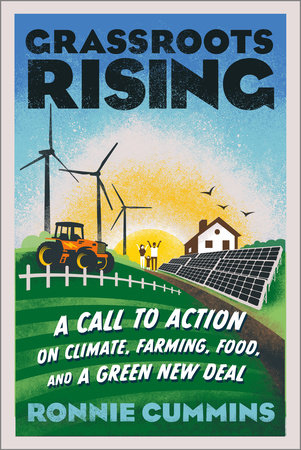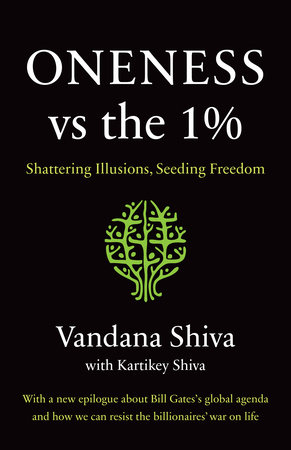Making the Great Resignation Even Greater
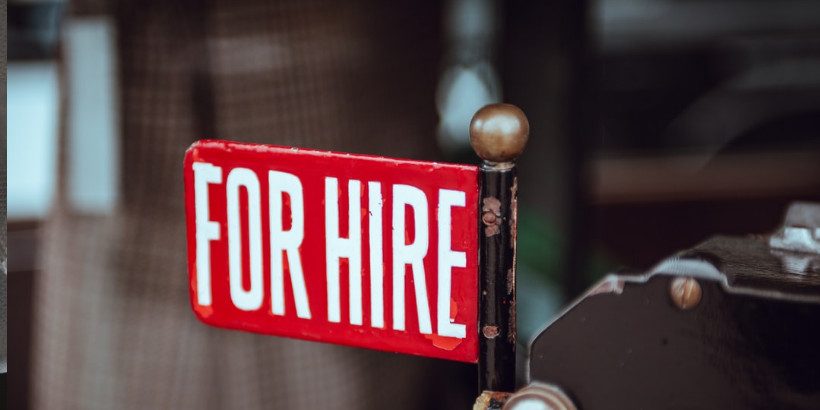
People are quitting their jobs and retiring at an alarming rate all over the country. Dubbed “the great resignation,” this change in the American workforce is causing shortages and supply chain issues in many sectors, from healthcare to retail.
The following is an excerpt from Scanned by Nick Corbishley. It has been adapted for the web.
Even before the Biden government unveiled its vaccine mandate in September 2021, a record number of Americans were quitting their jobs.
The Job Openings and Labor Turnover Survey found that 2.9 percent of Americans quit their jobs in August, the highest figure since the survey began in 2000. This trend was dubbed the Great Resignation, or the Big Quit, and is happening for many reasons, including shoddy work conditions, intensifying workplace surveillance, and Victorian-era differentials between the salaries and bonuses rewarded at the top and the peanuts handed out at the bottom. Due to the high demand for workers across the economy, some low-paid workers are looking for better paid jobs in other sectors. Others are opting to retire early.
And then, of course, there are the vaccine mandates. As they have come into effect, the Big Quit has got even bigger.
In September, the number of people quitting grew even more, reaching a new record high of 4.4 million—equivalent to 3 percent of all Americans. The hardest hit sectors were leisure and hospitality, trade, transportation and utilities, and professional services and retail. The fact that many workers in the trade, transportation, and utilities sector are leaving their posts should be a major cause for concern, given the ongoing supply chain and energy crises.
Many Western economies are also suffering from a dearth of truck drivers. France is short of around 40–50,000, Germany 80,000, and Spain 15,000.1 The UK urgently needs 100,000 more truckers if it is to meet demand, according to the trade group Road Haulage Association (RHA).2 If it doesn’t, the country risks suffering even more severe energy and food shortages. However, the UK’s truck driver shortage is a result of a number of factors including, of course, Brexit, which led many foreign truck drivers to head back home; the huge backlog in truck driver tests due to the pandemic, meaning tens of thousands of potential new drivers have been unable to join the industry; and the fact that even before the pandemic more people were leaving the industry than coming into it. Many young people simply don’t want to work in such a hard, lonely, and often poorly paid job.
In the United States, truckers can earn even less than the statutory minimum ($2.13) earned by waiters with no hope of tips making up the difference, explains Ryan Johnson, a 20-year truck driver, in his article “How Truckers Are Paid”:
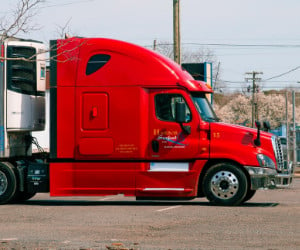
Truck drivers can legally be paid in multiple ways. This is true for all levels of trucking, either direct employee, “independent contractor” owner ops leased to a company, or owner operators under their own authority. They can be paid hourly, a percentage of the load, by the mile, flat rate, or a combination of all of these. But in all of these cases, the wage laws that apply to 99% of the public who are paid hourly do not apply to trucker pay.3
Mandating vaccines for the millions of truck drivers across the United States will make matters a lot worse. The country is already short of around 80,000 truckers compared to before the pandemic. But that number could explode if the federal government pushes through its vaccine mandate without exempting the haulage industry. If Biden’s January 4 vaccine deadline is enforced, the industry will lose 37 percent of its truckers, or 2.5 million people, according to a survey by the American Trucking Association (ATA), the country’s largest trucking trade group.
“We’ve tried to be very clear to the administration—I understand the logic behind it—but if you do this, these are the consequences,” said ATA President Chris Spear in testimony to the US Congress. “So, if you’re trying to solve the supply chain problem, you’re actually compounding it and actually hurting the very problem you’re trying to fix . . . 37 percent of the drivers not only said ‘no,’ but ‘hell no.’
A worsening supply-chain crisis not only means that products will take longer to reach businesses and end-consumers but also that when they do, they will be more expensive. This will heap even further pressure on the tight margins of many of the world’s already struggling, heavily indebted small and medium-sized businesses.
The trucking industry reflects a broader trend in the United States, which is that blue-collar, customer-facing industries are seeing the biggest exoduses.
By November 2021 manufacturing quit rates were up 78 percent compared to February 2020, according to Nick Bunker, economic research director for North America at the Indeed Hiring Lab. By contrast, the number of people quitting in a traditionally white-collar, office-based industry, such as the financial activities sector, was up only 5 percent. In other words, many of the low-paid essential workers who were lionized for keeping the economy alive last year are leaving their jobs in droves while well-paid white-collar workers are largely staying put.4
While many of those who left their jobs in the summer did so over reasons of pay, benefits, and working conditions, by the autumn the main motivation had shifted to the vaccine mandates, according to Ronald J. Pugliese Jr., a union, labor, and employment lawyer:
The government mandates on health care workers, educational employees, and federal government employees have not persuaded people to take the vaccine as expected. In fact, it looks like more people are choosing to leave their jobs or ask for accommodations rather than submit to forced vaccination . . .
Now we are stuck with a divided society, a labor crisis, a supply chain crisis, soaring inflation, low worker morale, a low vaccination rate, a pandemic that will not quit, and millions of Americans out of work. Oh, and to top it off, up to a third of Chicago police officers could be placed on unpaid leave over the city’s vaccine mandate. This is happening in a city where crime is out of control. Do the residents of Chicago, and other major cities, really want their police forces cut in half over their vaccination status? I know I don’t.5
This is one of the most important side effects of the vaccine mandates and passports: At a time when the economy needs more qualified workers than ever, millions are being threatened with the sack for refusing to take a vaccine that offers little hope of controlling, let alone vanquishing, the virus. This is going to make life even harder for the legions of struggling small and medium-size businesses. To make matters even worse, as economic conditions decline, many of the public workers we depend on to keep society functioning—police officers, soldiers, refuse collectors, firefighters, teachers, coastguard officers, customs officials—are also being sidelined.
Notes
- Martin Arnold and Alexander Vladkov, “Europe’s Trucker Shortgage Becoming ‘Extremely Dangerous,” Financial Times, October 12, 2021, https://www.ft.com/content/e8ca2a08-308c-4324-8ed2-d788b074aa6c.
- Reality Check Team, “How Serious Is the Shortgage of Lorry Drivers?” BBC News, October 15, 2021, https://www.bbc.com/news/57810729.
- Ryan Johnson, “I Am a Twenty-Year Truck Driver, Part 2: How Truckers Are Paid,” Medium, November 16, 2021, https://medium.com/@ryan79z28 /i-am-a-twenty-year-truck-driver-part-2-how-truckers-are-paid-de86ea419f2f.
- Megan Leonhardt, “The Great Resignation Is Hitting These Industries Hardest,” Fortune, November 16, 2021, https://fortune.com/2021/11/16 /great-resignation-hitting-these-industries-hardest.
- Ronald J. Pugliese, Jr., “We Can’t Ignore Vaccine Mandates as We Look into Labor Shortages,” Fortune, November 9, 2021, https://fortune.com/2021 /11/09/biden-vaccine-mandates-labor-shortages.
Recommended Reads
Recent Articles
You’ve Been Missing Out! Bone Broth is the ultimate superfood, packed with nutrients and goodness. Consider adding this nutrient-rich, immune system boosting bone broth into your daily diet.
Read MoreThese small fruits are a delicious source of nutrients that you can find almost anywhere. Get started on acorn harvesting with help from these simple tips!
Read MoreWondering what to do with pumpkin seeds? Instead of roasting them, try these alternative ways to prepare & use seeds! Plus a must-try pumpkin granola recipe.
Read MoreTired of trying different traditional medicines to relieve inflammation and joint pain? We have the perfect solution: honey bee venom.
Read MoreBefore yanking out the next patch of lambsquarter you find in your yard or garden, consider trying one of the many edible and medicinal uses of this “super weed.”
Read More

